PRESERVING A MILITARY LEGACY FOR FUTURE GENERATIONS
The following Reflections represents SP4 David Jordan’s legacy of his military service from 1958 to 1961. If you are a Veteran, consider preserving a record of your own military service, including your memories and photographs, on Togetherweserved.com (TWS), the leading archive of living military history. The following Service Reflections is an easy-to-complete self-interview, located on your TWS Military Service Page, which enables you to remember key people and events from your military service and the impact they made on your life. Start recording your own Military Memories HERE.
Please describe who or what influenced your decision to join the Army.
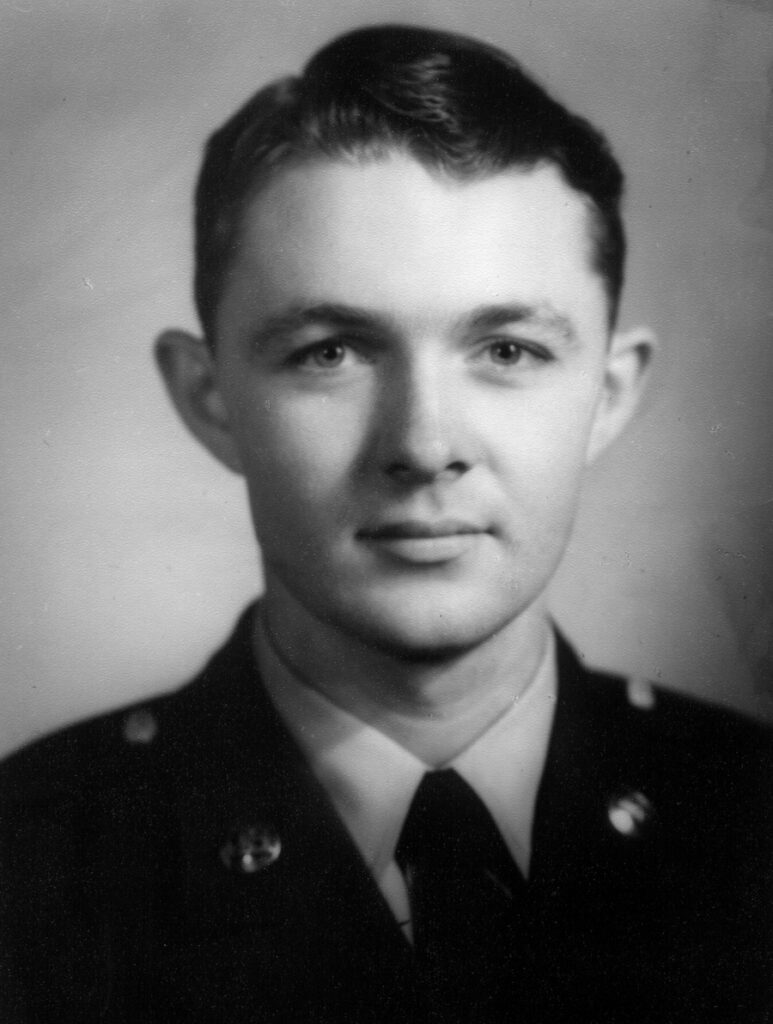
Knowing that, as young men, we all faced Universal Military Training, otherwise known as the draft. After my first year of college, I decided that if I really wanted to serve in the armed forces of the United States, it would be better to do it while still young.
College and civilian careers would always be there, but to be young and healthy, take the training and see the world while serving my country was attractive to me. I had uncles and older cousins who served during World War II – most in the Pacific theater but a few in Europe.
My father and his two older brothers had also been to The Citadel, which taught me that I would like to spend my time in the service, at least while still young.
They attended the Military College of South Carolina, and all three served in the National Guard, but by the time the US entered the war, all were exempted by age and family.
Whether you were in the service for several years or as a career, please describe the direction or path you took. What was your reason for leaving?
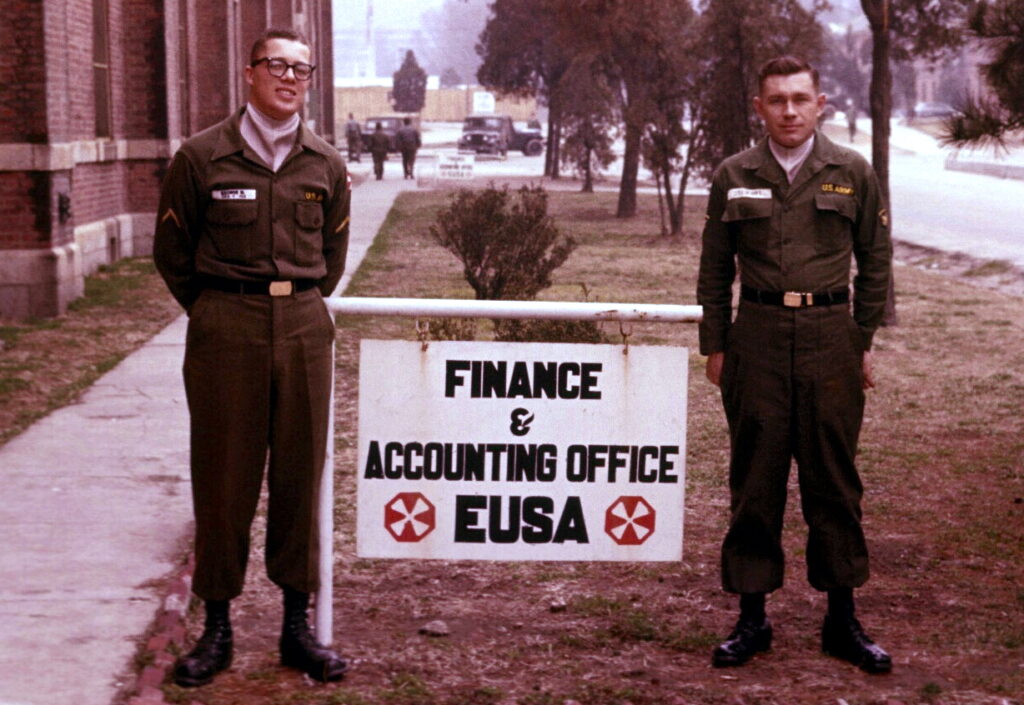
I chose to enlist in the Finance Corps, and I knew and understood that I would be trained to use the latest and most modern computers. It was a wise choice because it served me well when I was in the Army and later when I became a civilian again. I was a fast learner and distinguished myself well, earning letters of appreciation and choice assignments.
My first was as director of tests and testing at the Army finance school at Ft. Benjamin Harrison, Indiana. I was transferred to the Eighth US Army Finance and Accounting Office in Seoul, South Korea, and ended my 18 months there as Director of the Commercial Accounts Division. I then returned to the States to Ft. Bragg, NC, and was assigned as a Staff Finance Officer in the First Logistical Command.
Upon discharge from active duty, I was awarded a Certificate of Achievement by the Commanding General of The First Logistical Command. This was also after participating in the LOGEX exercises at Ft. Lee, Virginia.
If you participated in any military operations, including combat, humanitarian and peacekeeping operations, please describe those which made a lasting impact on you and, if life-changing, in what way?

During my time in Korea, the Colonel that commanded the 8th Army Finance Office asked me if I would take on an extra assignment. Pfizer Laboratories had eight South Korean scientists they wanted to assign to Australia. All of these men could read and write English because all of their textbooks and materials were in English, but they could not speak English conversation. The Colonel asked if I would be willing to teach these men, and, of course, I agreed. Pfizer also compensated me well for the service.
After this experience, my Korean friend, Yoon Myung, started recruiting college students, professional radio personalities, and even one movie star, plus friends that were sons and daughters of prominent Koreans, for me to continue teaching. I did this for the entire balance of my time in Korea and my duties at the 8th Army Finance and Accounting Office. This service gave me extraordinary opportunities to travel and learn about Korean culture. I made many friends and corresponded with them for several years after leaving the assignment.
Most of the soldiers assigned to South Korea at that time did not want to be there. It was a backward, smelly, third-world environment, but I discovered the true nature of the Korean people and can only marvel at the achievements and state of affairs there today.
Did you encounter any situation during your military service when you believed there was a possibility you might not survive? If so, please describe what happened and what was the outcome.
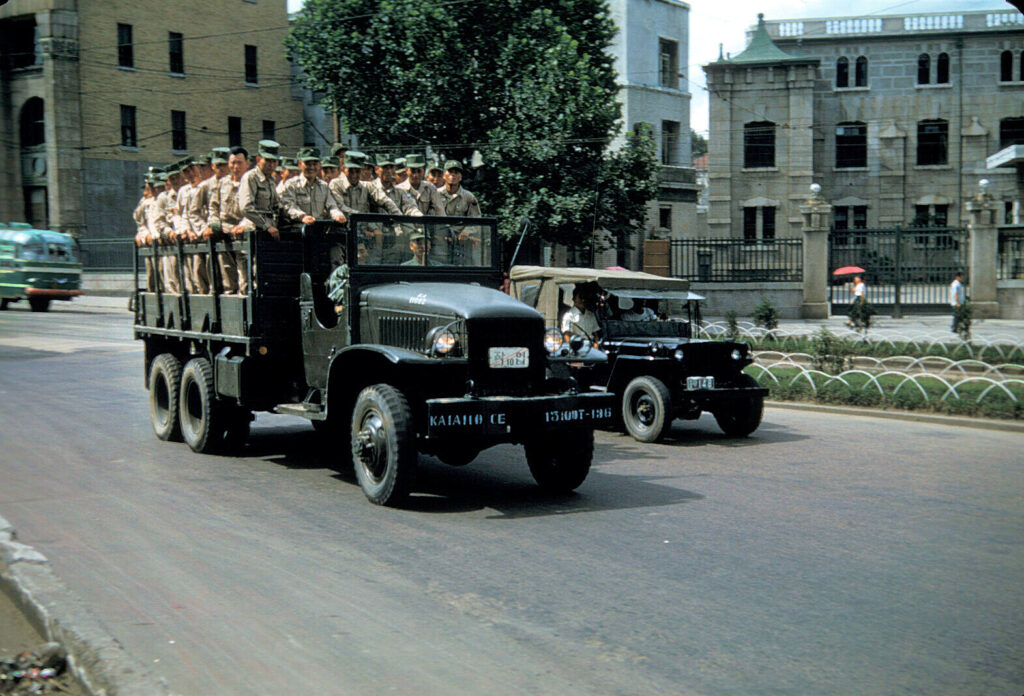
While in South Korea, during the spring of 1960, I was present during two revolutions.
The first was started by university students that marched in protest of the restrictive mandates of President Sigmon Rhee. I was at the American Embassy, directly across from the Presidential Palace. The students were in a “dragon formation” chanting peacefully, but when they arrived at the front of the Palace, the Palace Guard opened fire at nearly 500 students – killing at least a hundred or more. I was with a Korean student friend and college student in the middle of the melee. We dived into a Hopson Cab, and I remember shouting in Korean instructions to the driver, “Hanam dong. Cuyahoga.” That’s a combination of “Take me to Hanam Dong (US Army Base) and make it quick.” The attempt at a peaceful Revolution was put down in less than a week.
The following week I was a duty driver for our company and was assigned to pick up our commander, a Lt. Col, at the Education Center off base on a Monday night. When I got there, the building was dark, but I saw the Col. and another officer huddled in the shadows. The actual Revolution had started, and the Army Chief of Staff, Chung Hee Pak, had orchestrated a real revolution. President Rhee escaped to the US HQ and was flown to Hawaii for safety. I flung open the side curtain to the jeep, and both officers jumped in and told me to drive directly to General Magruder’s compound (8th Army Commander.) The major that was with my commander was General Magruder’s aide. We were fired upon but made it safely to the HQ.
Of all your duty stations or assignments, which one do you have fondest memories of and why? Which was your least favorite?

Eighth US Army, South Korea – broadened my view of the world, its problems, and solutions. Living and working in a “third-world” country gave me a greater appreciation for being an American.
I had no assignments that I could say were my least favorite.
From your entire military service, describe any memories you still reflect back on to this day.
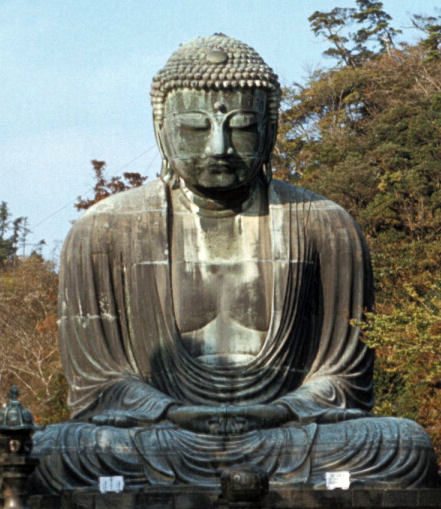
My greatest memories and reflections are of the travel across oceans and continents – 30 days at sea to Alaska, the Aleutian Islands, Yokohama, Tokyo, Nara, Inchon, Seoul, Ft. Lewis, Ft. Lee, Ft. Bragg.
What professional achievements are you most proud of from your military career?
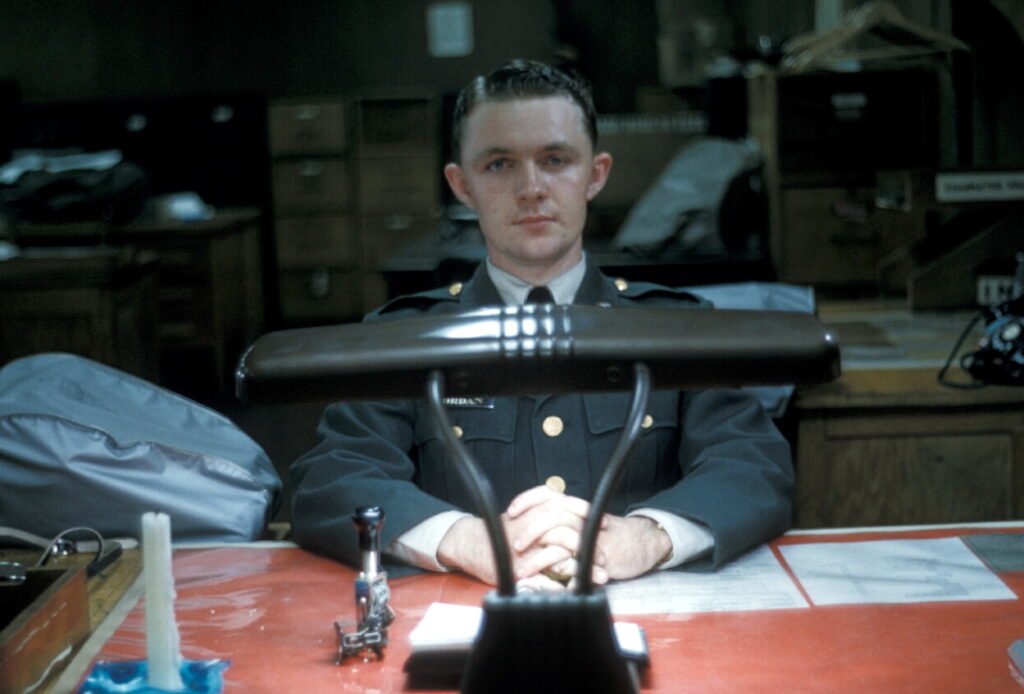
My last position in Korea was as Director of the Commercial Accounts Division. The job was slated for a Lt. Col., but the Army was in a state of reducing forces, so here I was, an SP4 serving as a Lt. Col. The job involved auditing all invoices submitted by contractors to the US Army in the Pacific. On average, I authorized the expenditure of more than one million dollars per week. I had to sign each voucher, David D. Jordan, SP4, FC, US Army. I was also privileged to meet some of the most important people in Korea from this position.
Possibly the wealthiest person was Mr. Han of the Han Jin Transportation Company. His company was the major civilian trucking and transportation company in Korea. One evening he even sent his Mercedes limousine with Diplomatic License Plates to pick me up and have dinner at his palatial home in the mountains. It was like a small walled city, and we had an extraordinary meal. His chief had originally come to Korea at the request of Mrs. Sygman Rhee, the President’s wife, but Mr. Han persuaded him to come to work at his home.
Of all the medals, awards, formal presentations and qualification badges you received, or other memorabilia, which one is the most meaningful to you and why?
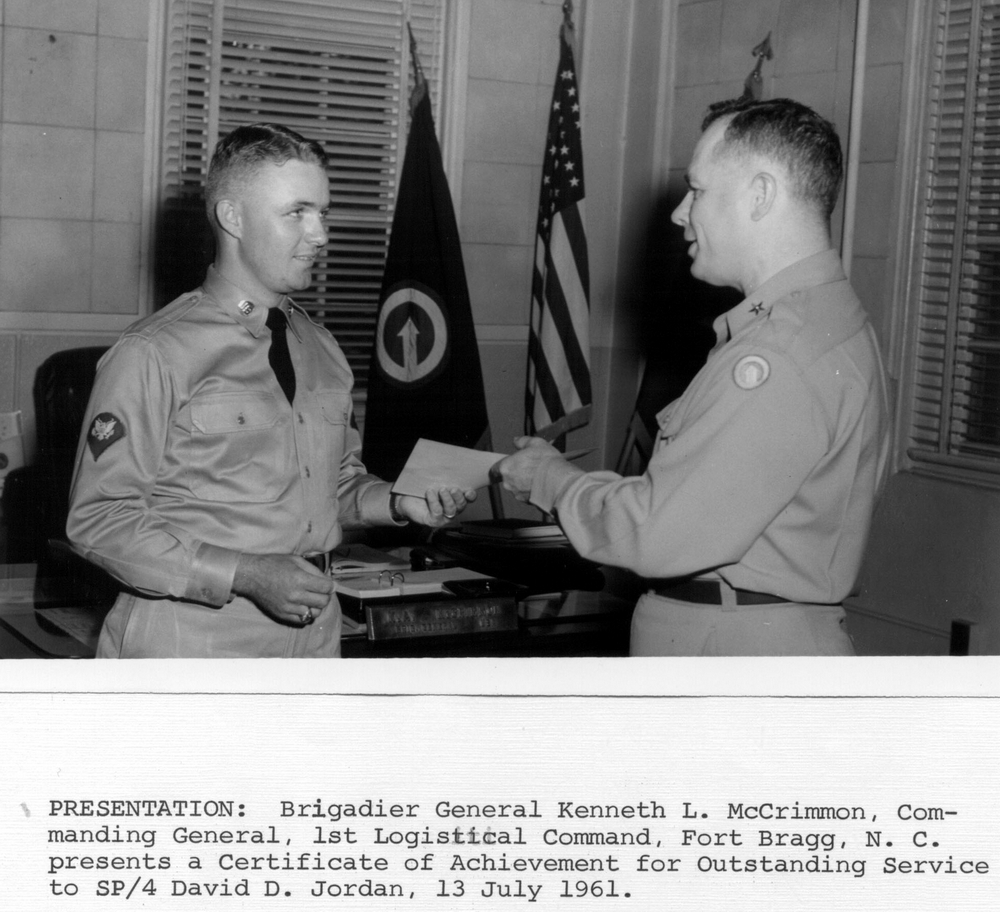
My Certificate of Appreciation from General McCrimmon was a recognition of the diligence of my work.
Which individual(s) from your time in the military stand out as having the most positive impact on you and why?
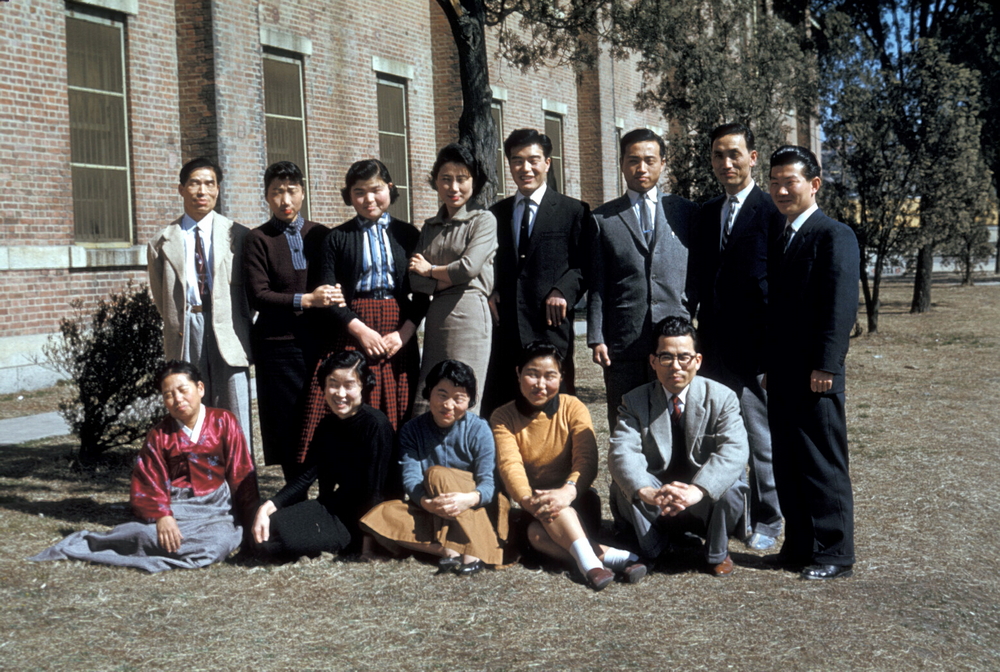
Lt. Col. Denman S. Chapman, the man that put me in the position to earn and learn. He was the chief of the office I served in at Ft. Bragg and one of the officers very close to General McCrimmon. Col. Chapman’s private life was also quite interesting. He entered the Army as an Infantry officer but was a very successful businessman. He was one of the original investors in the Dempster-Dumpster company and became very wealthy. He drove around the base in a Porsche 911-T – and likely exceeded the speed limits wherever he went.
Major William D. Poteat, our LOGEX coordinator with Ft. Lee, Virginia, and his assistant PFC Jack Gaddy were good friends and associates. PFC Gaddy and I used to take a coffee break together every morning at 10:00 a.m. Major Poteat kept us both informed on the progress with LOGEX and coordination with the US Army Finance Center at Ft. Benjamin Harrison, Indiana, and also the LOGEX group located at Ft. Lee, Virginia.
SP5 T. L. Toomer befriended me and taught me the intricacies he had encountered on entering the Army as a young African-American.
MSGT C. Anderson was my immediate supervisor and was very gracious in guiding me in my functions at 1t Log (as it was nicknamed.)
List the names of old friends you served with, at which locations, and recount what you remember most about them. Indicate those you are already in touch with and those you would like to make contact with.

Robert L. Pierce and I became friends while attending the US Army Finance School at Fort Benjamin Harrison, near Indianapolis, Indiana. After training, he was assigned to the 8th Army Finance and Accounting Office in Seoul, Korea, and I was assigned to continue working at the F&AO School as head of the test division. About six months later, I was transferred to the F&AO in Seoul, and Bob and I became roommates and best friends. After Korea, he went to Fort Bragg, and later I followed. After completing our active duty, I got Bob a job in our family’s business (Bob was from Ohio.) We continued through life as best friends and business partners in several enterprises until his death about ten years ago.
While at Fort Harrison, a group of us musicians formed a jazz band and, on weekends, played at local clubs. It was great fun and good money, also. Our piano player was Bob Rowe from Monroe, Louisiana. He was so talented he could play rhythm or backup on the piano and do duets on a cornet with me playing the trumpet. Our trombone player was a CPA from Milwaukee, a saxophone player from Bangor, Maine, and a drummer from Chicago. On weekends when we didn’t have gigs, we would drive to Chicago and visit the jazz clubs there. We met some of the greats, such as Oscar Peterson, Ray Brown, Dave Brubeck, and Maynard Ferguson. Apparently, I have outlived all of my buddies from that era.
One other thing I did with my trumpet. Starting in high school, I was requested to assist honor guards performing military funerals for deceased veterans and returning KIA’s from the Korean conflict. Even after entering the US Army, I continued doing this and played at many funerals all over Indiana while at Fort Harrison. I don’t mean to brag, but I was a very accomplished musician and received many full scholarship offers for music when I graduated from high school. I tried to make every funeral I played as memorable as possible. It wasn’t easy holding back the emotion, but I felt I owed it to the families and loved ones to do the best job that anyone could do. To this day, I don’t believe anyone could play Taps with more beauty and emotion than I do.
Can you recount a particular incident from your service, which may or may not have been funny at the time, but still makes you laugh?
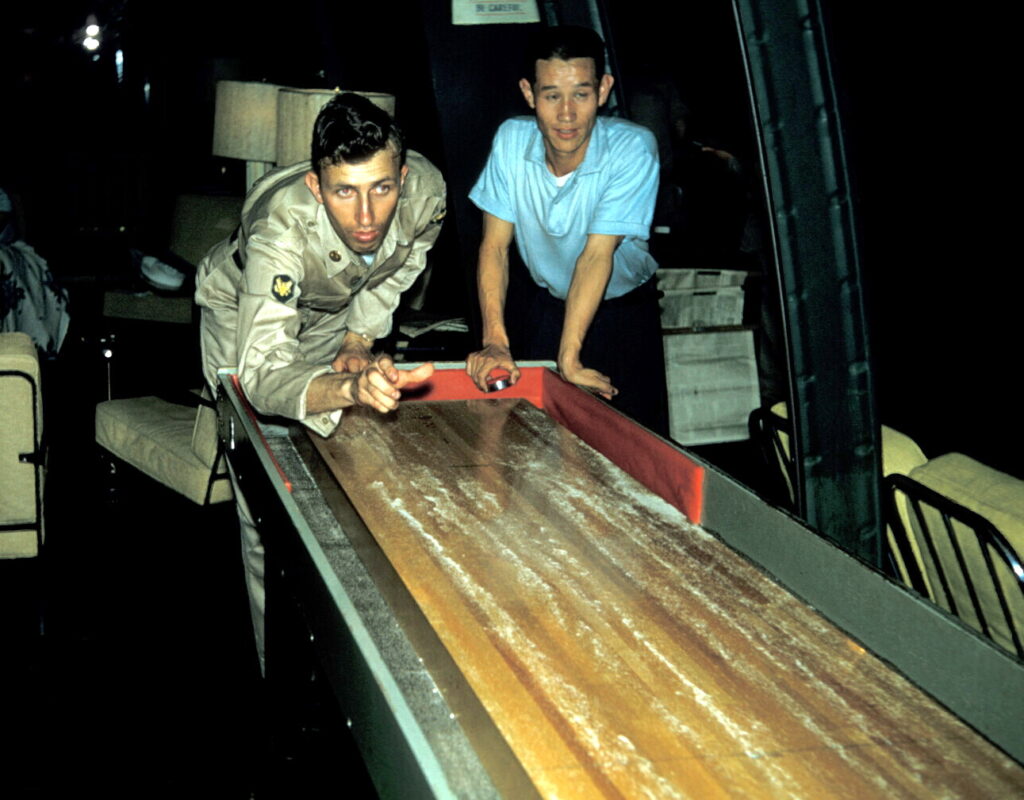
In Korea, it was my custom at coffee break, 10:00 a.m., to run to the BX, quickly check the camera section to see if a particular item I wanted was available, and then trot on through the store to pick up the stuff I wanted for the day. One morning, I ran by the camera counter, not looking where I was going, and ran slam into another soldier that knocked me flat on my rear. I looked up at the tall, physically strong man; all I could see were stars. Two on each shoulder and two on his fatigue cap. It was unmistakably Major General William Westmoreland, commander of the 101st Airborne. I was stunned and speechless.
The General’s aide was about to read me the riot act, but General Westmoreland leaned over, gave me his hand, and helped me to my feet. He said, “Soldier, are you okay?” Relief spread all over my body. I said, “Sir, I’m terribly sorry . . .” and as I tried to continue, he said, “I understand you are short of time. Carry on.” I melted into the crowd hoping never to be seen again. What a kind and gracious man he was. I later learned that we had some things in common – both of us were born in South Carolina, he has been to “The Citadel” as had my father and uncles – and later in life, I attended Harvard University – and so had he. Of course, he also went to the US Military Academy and became one of its most distinguished graduates.
A second funny story was that our base had an enlisted man’s club. Officers rarely would come inside, but one Sunday morning, Brigadier General Tank came through the door. He was easily recognizable, not being very tall, but in Korea, we wore OG uniforms, and officers’ rank was pinned to their collars. Naturally, when General Tank came through the door, many of us wanted to jump to attention, as was tradition, but some goofy Pfc welcomed General Tank by saying, “Good morning, Private Tank.” The General had forgotten to pin his stars on his fatigue shirt. He laughed, turned around, and left in a hurry.
What profession did you follow after your military service and what are you doing now? if you are currently serving, what is your present occupational specialty?
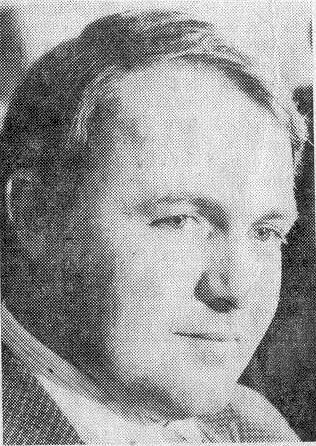
After leaving active duty at age 22, I was elected to the North Carolina House of Representatives at age 26. I was the youngest member of the General Assembly and went on to a career that involved politics and public service. After ten years of active work in the State Government, I became a business consultant, tax accountant, property manager, graphic artist, writer, author, publisher, and raconteur – all at the same time.
Because of the Coronavirus Pandemic, most of my business activities are currently limited, so I spend my time writing, and occasionally someone needs assistance with a tax problem. But life is never boring for me.
What military associations are you a member of, if any? what specific benefits do you derive from your memberships?
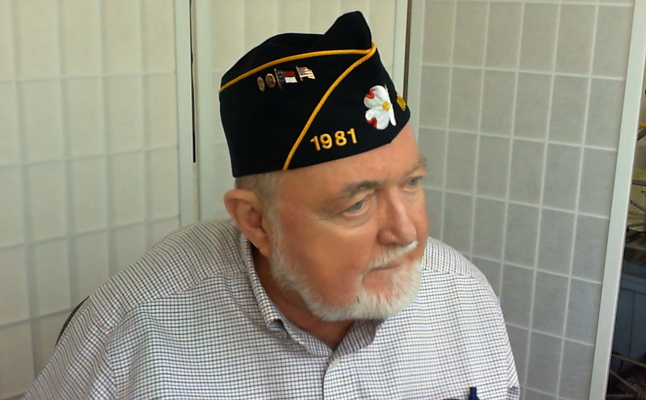
I am a member of the American Legion, Life Member, “Paid up for life.”
The American Legion, the oldest organization of its kind, gives me information and opportunities to perform various services and support other veterans.
In what ways has serving in the military influenced the way you have approached your life and your career? What do you miss most about your time in the service?
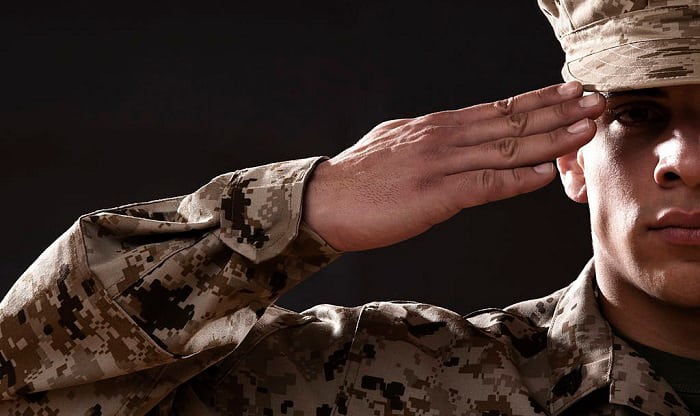
My military life taught me how to approach work and life with discipline.
I miss the sense of brotherhood I experienced in the Army. We were all on the same page, working toward the same mission.
Based on your own experiences, what advice would you give to those who have recently joined the Army?
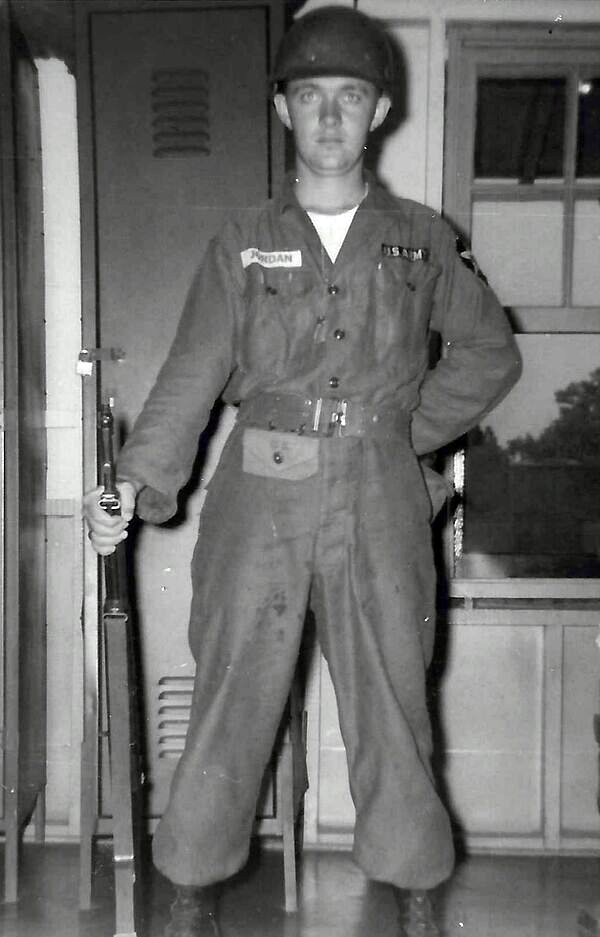
Follow all lawful orders. Find creative solutions to complex problems. Stay away from trouble. Be kind and supportive to your family, friends, and neighbors.
In what ways has togetherweserved.com helped you remember your military service and the friends you served with.
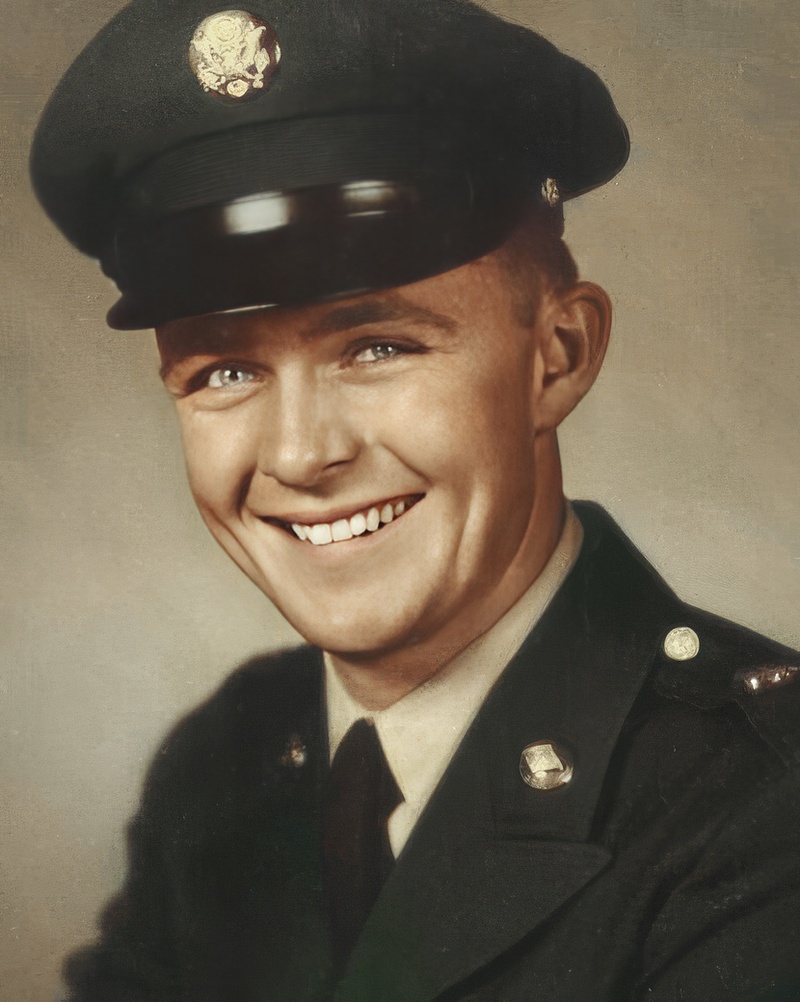
TWS has helped me locate and organize all of my memories of service. I am a life member of The American Legion. I wrote a memoir ten years ago – it’s time to update it.
Just recently, I made contact with my first roommate in Korea. When he was discharged from active duty, he worked as a CPA in my hometown of Charlotte, NC. He’s about three years older than me but apparently in good health. He had moved away, and I had lost contact with him, but I managed to locate him just one week after starting this posting with TWS.
I look forward to finding more, I hope.
PRESERVE YOUR OWN SERVICE MEMORIES!
Boot Camp, Units, Combat Operations
Join Togetherweserved.com to Create a Legacy of Your Service
U.S. Marine Corps, U.S. Navy, U.S. Air Force, U.S. Army, U.S. Coast Guard
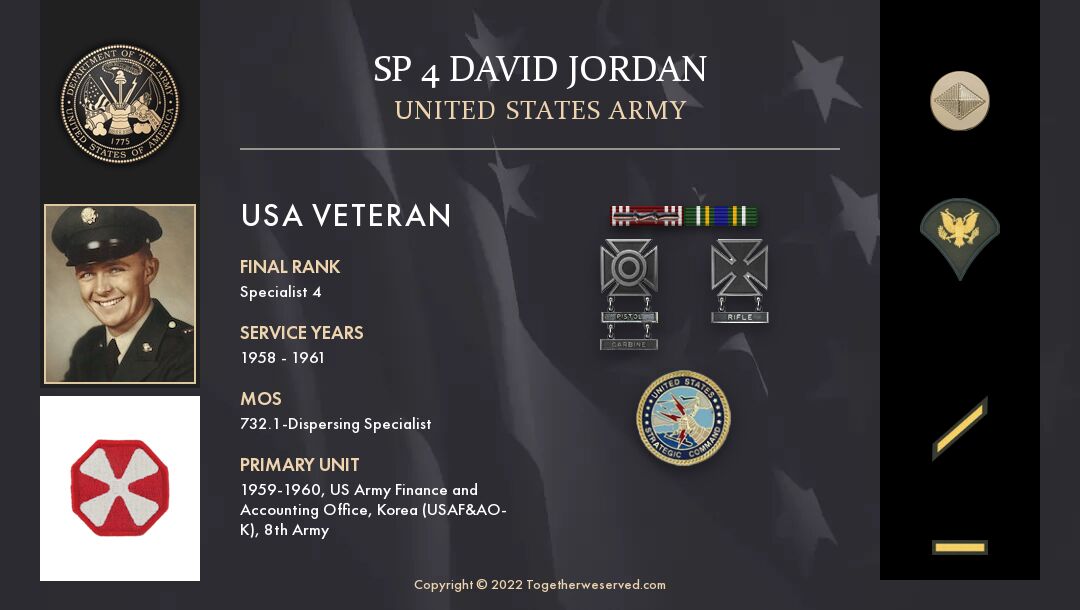
Really great job of writing.